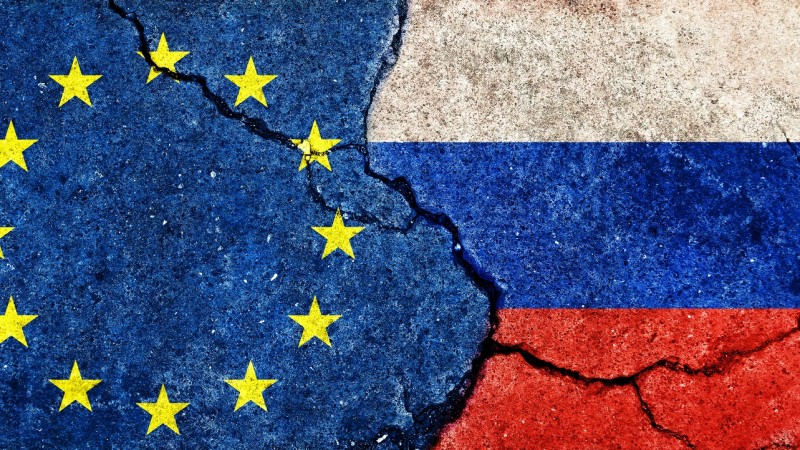Agri-food market on edge as EU sanctions spell trouble
May 6, 2022 at 11:40 AM ,
Der AUDITOR

Profiting from genocide
With reports emerging every day about Russian troops seizing or destroying grain and sunflower seed storage facilities in the territories they currently hold in the eastern and southern parts of Ukraine and transporting agricultural machinery stolen from farmers and manufacturers such as John Deere as far as Kursk as CNN reports it is becoming clearer that the bleak days of Stalin have returned for the time being at least. Russia employed similarly brutal strategies in the 1930s, when troops forcibly took food stocks from farmers in Ukraine, which caused millions of people to die. This dark chapter is known as Holodomor or Great Famine in Ukraine and is nothing less than genocide. Ukraine’s Ministry of Defence estimates that 400,000 mt of grain have been stolen so far.
To make matters worse the prices for grain are highly attractive in the global market. Wheat quotations, for instance, range as high as USD 400/mt and Russia is reaping the profits. According to Oleg Nivievskyi from the Kyiv School of Economics, several countries in the Middle East are happily buying Russian wheat at a 20% discount and do not care if they are actually being supplied with Ukrainian wheat as CNN reports. Problem is that wheat is difficult to trace. Egypt’s General Authority For Supply Commodities (GASC) also rejected a Russian shipment over 27,000 mt of wheat, which originated in Southern Ukraine, on 30 April. Unfortunately, the ship then took course towards Syria and Lebanon. Ukrainian diplomats are calling for such shipments to be seized.
Glimmers of hope
Nevertheless, there are glimmers of hope as Germany, Poland and the Czech Republic together with Slovakia, Romania and other European countrieshave agreed to align their rail networks to help ship grain and oilseeds from Ukraine that would normally have been exported by sea. While some grain is indeed being transported from Ukraine via Romania by rail, the problem remains that the different railway networks have different track gauges. The Danube River, which flows through Central and Southeastern Europe, provides another alternative route. Shippers in the small ports of the river, however, seized the opportunity to raise their prices, which has prompted Ukrainian authorities to threaten price regulations. According to the information and analytical agency APK-Inform Ukraine shipped 768,486 mt of corn, 127,130 mt of wheat and 151,529 mt of sunflower oil in April. Although this is a far cry from the 2.8 million mt of grain shipped in April 2021, it is still better than nothing.
Traders also report good progress for sunflower seeds as the EU imported as much as 20,000 mt from Ukraine last week. As fuel is starting to run low it is, however, unclear at present in how far these volumes can be maintained. Since the Russian invasion slowed down exports many suppliers in Ukraine are now forced to sell quickly to make space for the new crop. Farmers in Ukraine have so far sown an area of 1.369 million ha with sunflower seeds and sowing is 21% complete.
Buyers desperately try to brace for new sanctions
Although the measures underway to maintain grain and oilseed exports from Ukraine display a high degree of creativity and resilience, Europe’s agrifood and feed market is already feeling the sting of the EU sanctions imposed on Russia. Companies requiring flaxseed are, for instance, scrambling to secure supplies before new sanctions hit. The EU already banned all vehicles from Russia and Belarus from travelling within the bloc in April, with exceptions for agricultural supplies inplace. The, nevertheless, hit the industry hard as flaxseed from Russia and Kazakhstan is frequently transported by road via Poland to the EU. In addition, the European Commission has now proposed phasing out all Russian oil imports within the next 6-12 months in its sixth round of sanctions against Moscow. Intention is not only to ban direct imports of Russian oil but also any involvements with the Russian oil industry. The member states, however, still need to agree.
Although analysts state that the EU economy will be able to shrug off the impact of such a far-reaching ban, which can effectively block Russia from the international oil market, things are different for agricultural commodities. Issue is that such a move may very well send diesel prices skyrocketing and the EU imports about half of its diesel from Russia as analyst David Wech from the consultancy firm Vortexa recently pointed out. As feed costs have exploded and the prices for fuel, energy and fertilisers have gone through the roof transportation and production costs have skyrocketed, which is already leaving importers and farmers to struggle in the EU. The European Milk Board, for instance, recently highlighted that although the prices for milk have risen this by no means compensates for the rise in production costs. This not only means that many dairy farmers within the EU will have to give up very soon but also that food production will be impacted.
The EU can no longer afford to sponsor Moscow’s military and an embargo on Russian oil is certainly another long overdue step in the right direction. Problem, however, is that while any concerns for the economy have been carefully weighed up and can be alleviated, this is not the case for producers, suppliers and buyers in the agri-food and feed market. The new sanctions will instead provide a further test for the resilience of the market.
View more
- price charts on oilseeds, nuts, dried fruit, spices and more





